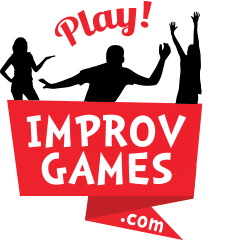How to Play
Have the group stand in a circle.
Explain that the object of convergence is to have two people say the same word at the same time.
Here is how I often describe it.
The object is for two of us to look at each other and say the same word at the same time.
First we have to determine which two people will be the players for the round.
When you think of a word to say, you let the group know by saying, “one”. This will show that you’re ready and looking for a partner.
When someone else in the circle thinks of a word they let the group know by saying “two”. Now we have the two players for the round.
Those two players face each other (keeping their place in the circle).
Together they say, “one, two, three” and where they would say “four” they say the word they have in mind simultaneously.
Player A and Player B at the same time: One…Two…Three…
Player A: ‘word’
Player B: (at the same time) ‘word’
At this point I say, let’s try it. I will often add, you may be thinking of a ‘good’ word. But that’s not necessary for this game. Any word will do. If you can say it, it’s good for the game. “And”, “if”, and “a” are all good words.
When you have a word, let us know by saying “one”.
Resist being in the first round. Let them discover the game.
After the two have blurted out their words. You may have to ask them to repeat them so the group knows what the two words are.
In the next round we’re trying to find the word that is suggested by the previous round. For example if the first round words are Toy and Car. What words is suggested, in your mind, by those two words?
If the group is taking a while, you may have to encourage them to let their mind come up with a word. Trying to find a word may not be a useful strategy.
You can add that since the words Toy and Car have already been used, they are out of the running. And I always add:
But if a word shows up in our game again, even though it’s been said before, let’s accept it and not let it stop our play. It happens.
Then say, that’s it.
What word do you shout?
In the initial round, just shout any word that comes to mind.
In later rounds, look for a word that is suggested by the two previous words. The words ‘water’ and ‘dirt’ may suggest ‘mud’. But it may suggest something else to another player, ‘photosynthesis’ for example. The game has a whimsical element. The near misses are part of the joy. Celebrate the way we all connect thing differently.
What did you say?
Often you may have to stop and have the players repeat the words so everyone can hear. No worries….keep the mood light and the game moving.
Celebration
When a convergence happens the entire group celebrates. Dance. Sing a little song. And start again.
Notes
The explanation can be a bit tricky. Be patient, after a minute or two they’ll get it and it’s off and running.
Themes can emerge and it is helpful to remind them to consider the two previous words only.
You may have to prompt players to trust the first thing that comes into their mind.
It is also fun to focus on commitment. “Say the word with confidence that you two will say the same word.”
There is an improv teaching moment when the group hesitates. You can inquire about the hesitation. And consider suggesting that sometimes the games just needs to keep moving. Try saying the first thing that comes to mind.
An interesting a welcome phenomenon happens with this game: No matter how large the group, when two words are said simultaneously everyone feels the thrill of winning.
I like playing this game when I’m out with friends or clients as an example of how engaging and instructive improv games can be.
Variations
Convergence is also called Mind Meld
There is a variation of this game called 1-2-3-Word.
This variation comes from the wonderful Laura Doorneweerd
It is actually quite fun when you do this game in people’s non native tongue, as they have fewer words in their vocabulary to pick from. They sometimes get to the same word much faster. If there are native speakers in the group, it encourages them to associate in simpler words (which can be super useful to get on the same page).
Origin
I learned Convergence from Rebecca Stockley or at a conference of the Applied Improvisation Network.
Get The Playbook so you have hundreds of games in your pocket when you need them.
